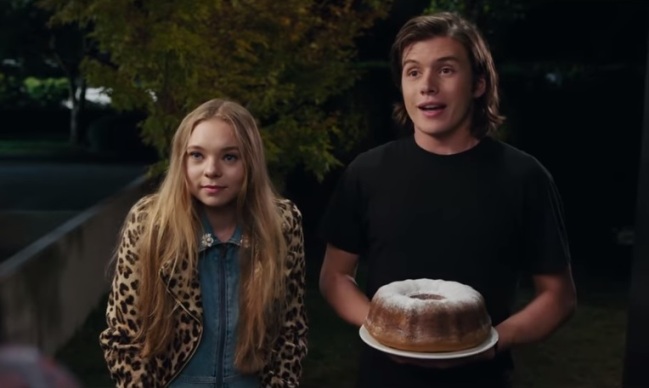I grew up in a family with shallow roots.
We moved again and again, and I wasn’t the type of child to thrive under those circumstances. It was challenging, to say the least.
As a child, what we want is simple: love, a sense of belonging or home, stability, and friends. I tried to bring a little optimism to the experience of being uprooted, but I quickly learned that there are always people who will go out of their way to make sure that we know we don’t belong. Small towns are known for this more than larger ones, but it’s a prevalent attitude—and one that needs to go.
I remember being 16 and starting for the first time in a new school. I knew no one my age in the school system, but I did know some teachers and administrators through my parents’ position in the community. Instead of making sure that I felt welcome and comfortable in a strange environment (think going from an inner city to a rural town), they made sure to let me know that I didn’t belong.
These adults actually spread rumors about me before I set foot in the door of my new school. I was different. I wasn’t one of them. People who might have befriended me steered clear. I look back on that experience and think that you have to be a pretty horrible person to ostracize a child for any reason.
I also look back on those experiences and see the people who did make an effort to be friendly and reach out. They were few and far between, but they were there. They were the ones who made all of the upheaval bearable, and I am endlessly grateful for having known their support. I wonder sometimes why more people can’t be like that.
So here I am again: I’m 35 years old and have only lived in my small community for a couple of years following a divorce that prompted the relocation.
As an adult, I just want what I wanted as a child: love, a sense of belonging or home, stability, and friends. I have love. I have a strong tribe of friends, family members who love me, a solid romantic relationship, and two beautiful, loving children. I can provide myself with my own sense of stability, even after a shocking job loss. I’ve always been able to make my own way. And the town I live in feels like home. I don’t know as many people in the community as I’d like to, and I find it difficult to make friends for the same reasons I did as a child: an innate shyness that I only overcome once I’m comfortable with someone.
I didn’t expect, after all of this time, to experience those feelings of being 16 and feeling alienated by someone in the community.
Yet, here I am: sharing my story.
Names and positions don’t matter. Not at all. What matters is that another human being took a fairly instant dislike to me—honestly, quite inexplicably—and has made sure to let me know that I don’t belong. I’m not one of them.
During the last confrontation, I first felt an overwhelming sense of shock: Not again! Then I moved into anger: This is ridiculous! By morning, I woke up with tears streaming down my face because I love the community that I live in, and I feel saddened and disappointed that there are still people who go out of their way to make it known that because I wasn’t born and raised here, I will never belong. People who make simple, everyday things infinitely more difficult. People who have no problem telling others that I’m this or that sort of person, rather than letting them form their own judgments.
It hurts. Not only does it bring back that first trauma and every subsequent one, but it’s deeply painful to know that someone would take strides to make others feel unwelcome.
But what I began to remember is this: my experience is not unique.
I’m not the only person to ever feel ostracized or judged in a community. Far from it! Nor am I the only adult who would love more friends and a stronger sense of community and yet struggles to obtain it. I began thinking of ways to communicate my experience and to pull out its lessons for the benefit of others. What can I do with this experience other than feel hurt and angry?
So even as I sit here frustrated and tired and deeply discouraged, I’m also hoping that people can learn. They can grow. They can even change their minds.
And here are a few ways we can all start being better, building others up, and giving ourselves a stronger sense of community:
1. When people move to our towns or neighborhoods, we can make sure to be welcoming. Say hello. Introduce ourselves. Offer guidance about the community. Offer an invitation to an event.
2. We can withhold judgments. I’ve met many people who I didn’t like at first. But, I was too quick to judge, and because I’ve had this experience before, I often give people the benefit of the doubt. I’ve found that, by doing this, I usually find common ground with those people. Many have become friends. I think we should allow others a second chance, just in case we’ve misunderstood them or judged them too harshly.
3. When someone asks us to go for a walk with them or out to coffee (or makes any overture of friendship), we need to show up. Many of us would love to make friends, but our offers are rebuffed and offers to us aren’t forthcoming. It’s difficult to make that initial overture, and it’s disappointing when it’s constantly declined, ignored, or canceled at the last minute. When we see that someone is trying to make that effort, we can at least honor that effort with our own.
4. We can treat people based on their own merits. Not on how they look or who their family members are. Not on their socioeconomic status, sexual orientation, race, gender, or any other factor. On the merits of their behavior. How they treat others. Who they are, apart from their demographics. Not based on rumor or conjecture.
5. We can practice the Golden Rule. Whether we are religious or not, nearly every practice or spiritual orientation has some version of the Golden Rule. We should always treat others kindly, just as we would like to be treated.
6. We can stop the system of nepotism in our communities. It’s all well and good that we want to help out family and friends—I get it. But we need to stop excluding others in our communities for this reason. It doesn’t matter if they’ve lived in our communities for their whole lives, three days, or three years: everyone should be given a fair chance at building a life in our communities and helping to make them stronger.
7. When we notice bullying behaviors—yes, even as adults—we need to call them out. We can let that person know that they aren’t alone. We can let the perpetrator know that it’s not appropriate to treat others in that way. We shouldn’t silently endorse bullying of any kind.
Life is difficult by itself. There’s no reason that we, as human beings, should make it harder for others for no other reason than that we can. We need to find a way to be a friend, to build our communities by thriving in our diversity, and by reaching out to others.
Rolling out the welcome wagon may be an antiquated phrase, but the sentiment is still of value. Let us all be welcoming of others in our hearts. And if we don’t like someone, fine. We don’t have to. But that doesn’t mean that we should exclude, belittle, or be unkind to others.
~
Author: Crystal Jackson
Image: YouTube
Editor: Catherine Monkman
Copy Editor: Callie Rushton
Social Editor: Yoli Ramazzina







Read 0 comments and reply